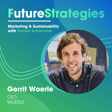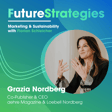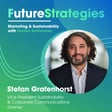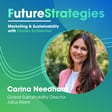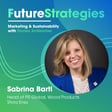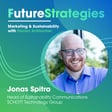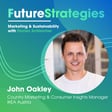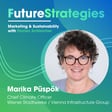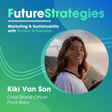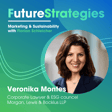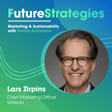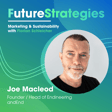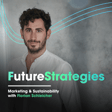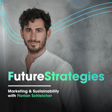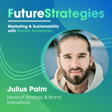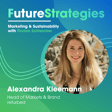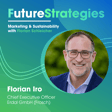
🧘♀️ "Sustainability as an integral part of business" - Anoushka Grover from Deliciously Ella on marketing for impact driven companies
Anoushka Grover, is the Head of Marketing at Deliciously Ella. As a purpose driven marketeer, she’s worked at Too Good To Go fighting food waste and at DAME working to reduce the environmental and social impact of period products. She’s also a TEDx Speaker and was nominated as one of the Future50 best emerging marketers in 2021.
So, are you curious to make your companies marketing ready for the future? Then I have the some simple and exciting options for you:
First, this is exactly what I do for my clients - I help them build their future strategies with workshops and sparring sessions.
I also have a very simple entry offer for founders and aspiring marketing experts: The Simple & Sustainable Marketing Academy, with a ridiculously cheap entry ticket price, because I love sharing what I have learned.
And if you enjoy reading: Check out my newsletter where I write about marketing, strategies and sustainability available every two weeks in the MarketingFutures newsletter.
About Florian Schleicher: I'm a marketing strategist - over the last 15 years I've led and helped shape marketing at McDonald's, Greenpeace and Too Good To Go. Now I help forward-thinking companies take their marketing to the next level.
With FutureS, the Impact Marketing Studio, I help brands achieve their goals and sustainable growth. All without the usual hustle.
